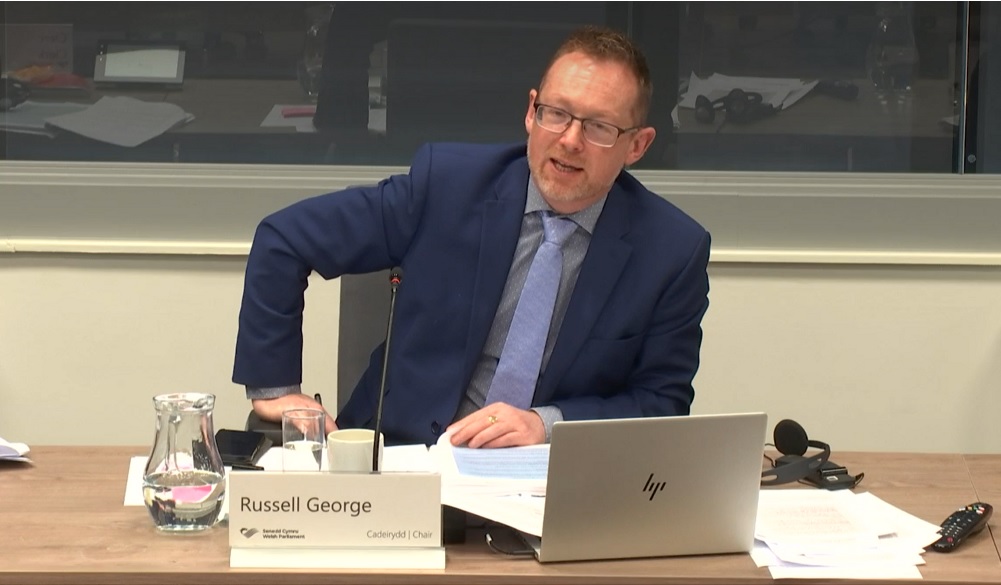Senedd Committee launches inquiry into mental health inequality

The Senedd’s Health and Social Care Committee is launching a new inquiry, which focuses on mental health inequalities across different groups in society.
The inquiry will concentrate on the experiences of people who are disproportionately affected by poor mental health in Wales and look at what barriers exist to accessing mental health services.
The Committee is looking at the extent to which Welsh Government policy recognises and addresses the mental health needs of these groups.
The Centre for Mental Health describes a ‘triple barrier’ of mental health inequality, which affects large numbers of people from different sections of the population:
- Some groups of people are disproportionately at risk of poor mental health. This is often linked to inequalities in society.
- Groups with particularly high levels of poor mental health can have the most difficulty accessing services.
- When they do get support, their experiences and outcomes are often poorer.
Russell George MS, Chair of the Health and Social Care Committee said: “Today we’re launching an inquiry to get to the bottom of mental health inequalities across Wales. It isn’t right that some people in society are disproportionately at risk of poor mental health and often struggle to receive the help and support they need.
“We know, for example, that children from the poorest 20% of households are four times as likely to have serious mental health difficulties by the age of 11 as those from the wealthiest 20%.
“We want to hear the experiences of those affected and to give a voice to under-represented groups to help us hold the Welsh Government to account. We want to use the experiences of people across Wales to help us set the direction for Welsh Government policy on mental health.”
The inquiry begins on 10 January 2022, with a call for written evidence. The Committee will be hearing from a wide range of people over the coming months and will report with findings and recommendations later in the year.
‘Following groups’
Work by the Centre for Mental Health and others (including the Mental Health Foundation, Royal College of Psychiatrists, Autistica, and the All Wales Deaf Mental Health & Well-Being Group) shows that the following groups are likely to experience mental health inequalities.
- Older people – 85% of older people with depression receive no help from the NHS. Older people are only a fifth as likely as younger age groups to have access to talking therapies, but are six times as likely to be on medication.
- Autism – 70% of children and 80% of adults with autism have at least one co-occurring mental health condition. Autistic adults (without a learning disability) are nine times more likely to die by suicide. Children with autism are 28 times more likely to think about or attempt suicide.
- Poverty – E.g. children from the poorest 20% of households are four times as likely to have serious mental health difficulties by the age of 11 as those from the wealthiest 20%.
- Ethnicity – Black adults are the least likely ethnic group to report being in receipt of medication, counselling, or therapy for mental health issues. Additionally, black people are far more likely to experience police involvement in their first contact with mental health services.
- LGBT+ people – Half of LGBT people reported that they have experienced depression in the last year. One in eight LGBT people said they’ve attempted suicide in the last year. Almost half of trans people said they’d thought about taking their own life in the last year.
- Deaf people – Deaf people are twice as likely to experience mental health difficulties, and may be further disadvantaged by a lack of mental health pathways and poorer access to health services generally.
- Learning disability – Children and young people with a learning disability are three times more likely than average to have a mental health problem. Only around a quarter of those who experience both a learning disability and a mental health problem have had any contact with mental health services.
- Severe mental illness – People experiencing severe and enduring mental health problems die, on average, 15–20 years earlier than the general population.
- Gender – Gender influences an individual’s mental health risk, and there are also gender differences in the ways that mental distress manifests itself. For example, young women were found to be three times more likely than men to experience common mental health problems, and rates of self-harm, PTSD, and eating disorders are significantly higher among young women than men. Men however, represent three quarters of deaths by suicide, and are three times more likely than woman to become alcohol-dependent.
Support our Nation today
For the price of a cup of coffee a month you can help us create an independent, not-for-profit, national news service for the people of Wales, by the people of Wales.





